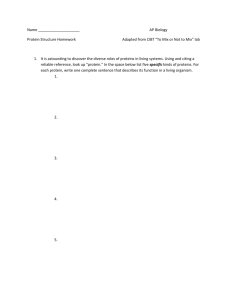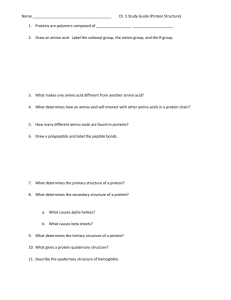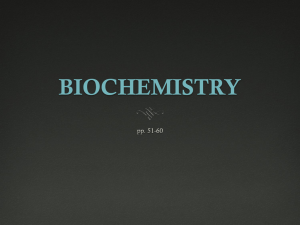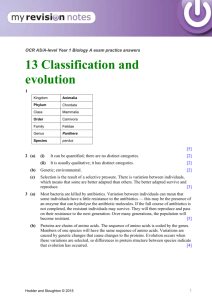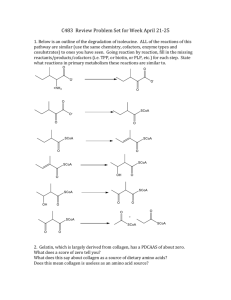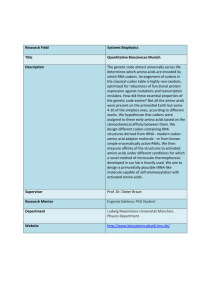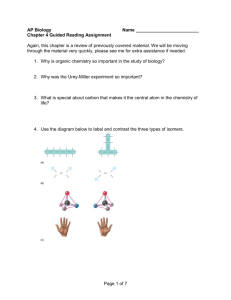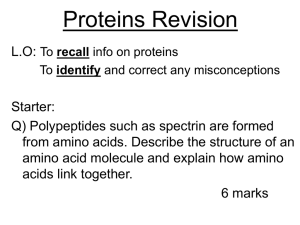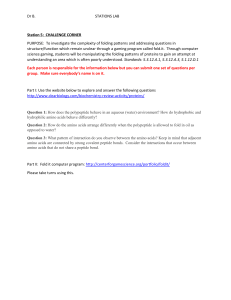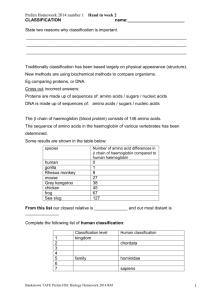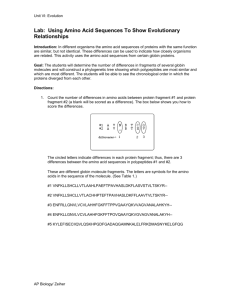Unit 1 Cell and Molecular Biology
advertisement
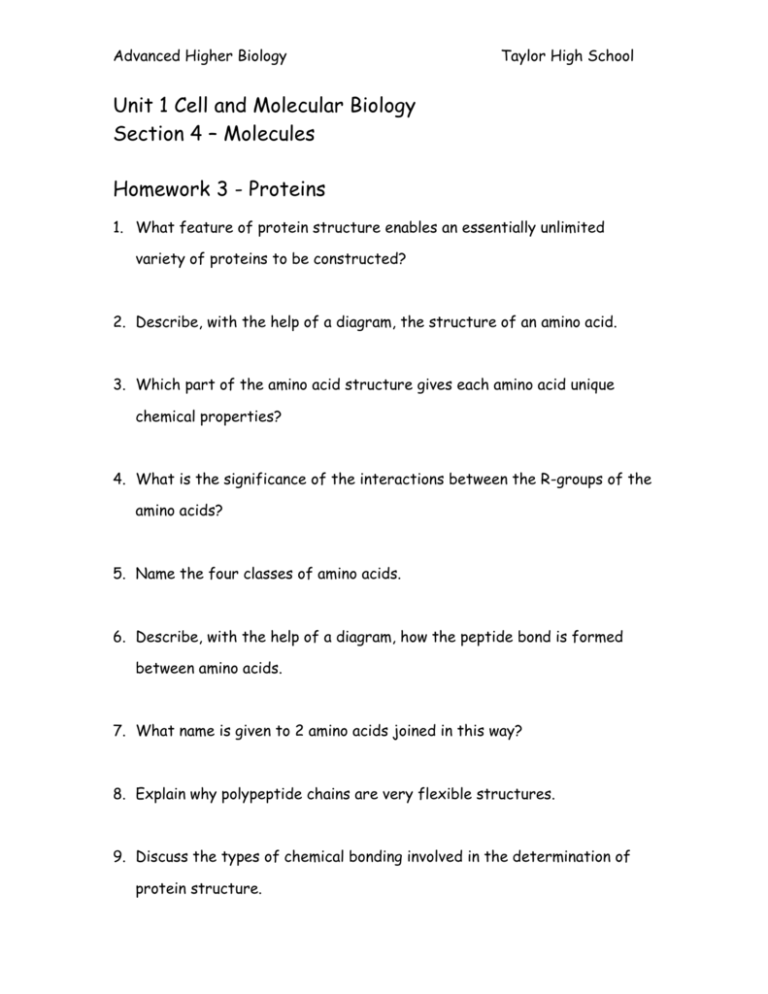
Advanced Higher Biology Taylor High School Unit 1 Cell and Molecular Biology Section 4 – Molecules Homework 3 - Proteins 1. What feature of protein structure enables an essentially unlimited variety of proteins to be constructed? 2. Describe, with the help of a diagram, the structure of an amino acid. 3. Which part of the amino acid structure gives each amino acid unique chemical properties? 4. What is the significance of the interactions between the R-groups of the amino acids? 5. Name the four classes of amino acids. 6. Describe, with the help of a diagram, how the peptide bond is formed between amino acids. 7. What name is given to 2 amino acids joined in this way? 8. Explain why polypeptide chains are very flexible structures. 9. Discuss the types of chemical bonding involved in the determination of protein structure. Advanced Higher Biology Taylor High School 10. Name the four levels of protein structure. 11. What is meant by the primary structure of a protein? 12. What is meant by the N-terminus and the C-terminus? 13. What are the 2 main types of secondary structure? 14. How are these different arrangements generated? 15. Describe the structure and arrangement of the -helix. 16. Describe the -sheet configuration. 17. -sheets can be either parallel or antiparallel. Describe, with the help of a diagram, what this means. 18. What is meant or described by the tertiary structure of a protein. 19. What part is played by hydrophobic interactions? 20. Which other type of bond is important is stabilising the 3-D structure of proteins? 21. Folded proteins may have other non-protein groups associated with them. What are they called? Advanced Higher Biology Taylor High School 22. Give an example of a protein with one of these groups. 23. What is meant by the quaternary structure of the protein? 24. Describe the structure of haemoglobin? 25. Draw a table to show the function and examples of the following types of protein: a. Enzyme b. Structural c. Receptor d. Signal e. Transport f. Motor g. Storage h. Regulaton Advanced Higher Biology Taylor High School
